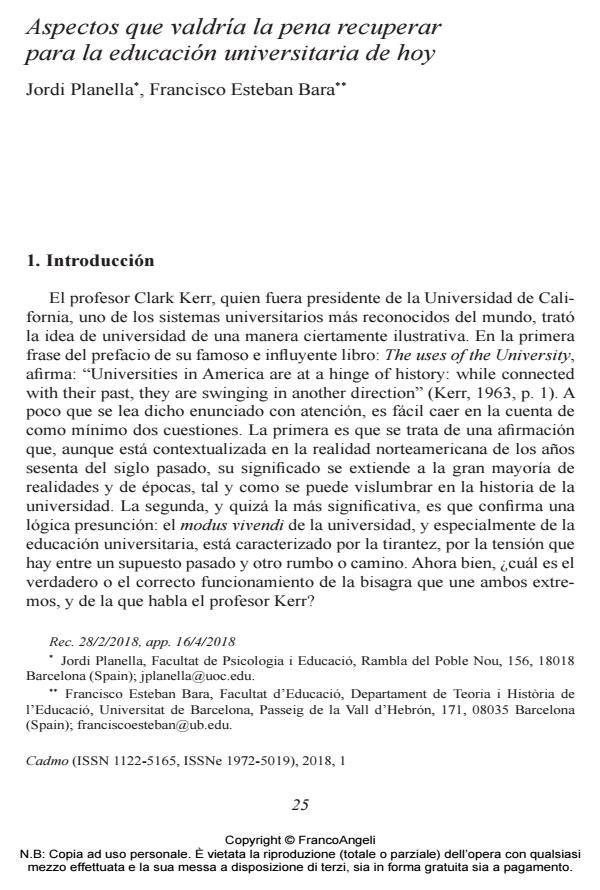Aspects that would be worth re¬covering in today’s higher education
Journal title CADMO
Author/s Jordi Planella, Francisco Esteban Bara
Publishing Year 2018 Issue 2018/1
Language Spanish Pages 12 P. 25-36 File size 149 KB
DOI 10.3280/CAD2018-001004
DOI is like a bar code for intellectual property: to have more infomation
click here
Below, you can see the article first page
If you want to buy this article in PDF format, you can do it, following the instructions to buy download credits

FrancoAngeli is member of Publishers International Linking Association, Inc (PILA), a not-for-profit association which run the CrossRef service enabling links to and from online scholarly content.
The article deals with the current state of higher education, where moral liberalism, pragmatism and utilitarianism could alternatively prevail. Nowadays higher education is generally valued and appreciated according to its level of utility, in a postmodern sense, i.e. with respect to efficiency and effectiveness. However, another higher education is possible, as the history of university and the philosophy of education shows us. Higher education has also to do with a process of personal transformation in the deepest sense of the term. For this reason, the article proposes to recover three aspects, namely: the recognition of the student as a true subject of moral learning; the moral excellence of higher education; and finally, learning specific disci¬plines and their contents.
Keywords: Higher education; ethics; philosophy of education; university teaching; higher education policy
Jordi Planella, Francisco Esteban Bara, Aspectos que valdría la pena recuperar para la educación universitaria de hoy in "CADMO" 1/2018, pp 25-36, DOI: 10.3280/CAD2018-001004